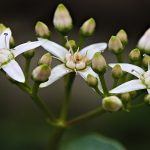Gardening is good for the environment because it promotes biodiversity and reduces carbon emissions. Gardening is not just a hobby; it is an activity that contributes positively to the environment.
By creating green spaces in urban areas and cultivating plants, gardening helps to increase biodiversity by providing habitats for insects, birds, and other wildlife. Additionally, the process of photosynthesis in plants helps to absorb carbon dioxide from the atmosphere, reducing greenhouse gas emissions.
Moreover, gardening can also help to improve soil health by reducing erosion and promoting water conservation. So, whether you have a small backyard or a rooftop garden, gardening is a sustainable and rewarding way to make a positive impact on the environment.
Reducing Carbon Footprint
Gardening is a wonderful way to contribute towards reducing your carbon footprint. By implementing sustainable gardening practices, you can significantly minimize your impact on the environment. Here are a few ways gardening can help in this regard:
Conserving Water
Gardening offers an opportunity to conserve water, one of our planet’s most precious resources. Through the use of techniques such as mulching and drip irrigation, you can efficiently manage water usage in your garden. Mulching helps retain moisture in the soil, reducing the need for frequent watering. Additionally, using drip irrigation systems ensures that water is delivered to plants’ roots directly, reducing wastage from evaporation or runoff. By conserving water, gardeners play a crucial role in combating water scarcity and promoting sustainable living.
Enhancing Soil Health
An essential aspect of gardening involves enhancing soil health through eco-friendly practices. By utilizing organic compost, you can improve the overall quality of the soil, providing essential nutrients to your plants without the need for chemical fertilizers. Healthy soil supports plant growth and helps absorb carbon dioxide from the atmosphere, mitigating its negative impacts on climate change. Moreover, cultivating plants with deep roots, such as trees and shrubs, further contributes to soil stability and minimizes erosion, preventing the release of carbon stored in the soil.
Promoting Biodiversity
Gardening is not just about creating a beautiful outdoor space; it also plays a crucial role in promoting biodiversity. When we cultivate plants in our gardens, we are providing an environment that supports and attracts various forms of life, from insects and bees to birds and small mammals.
Attracting Pollinators
Gardens are like a hub for pollinators, such as bees, butterflies, and other insects. These tiny creatures are essential for the reproduction of flowering plants, including fruits and vegetables. By growing a wide variety of flowering plants, we can attract and support these pollinators, ensuring the continuity of plant species and the production of food crops.
Providing Habitat For Wildlife
Gardens act as mini-ecosystems, providing a habitat for a diverse range of wildlife. By incorporating different plant species, including native plants, in our gardens, we create shelter, food, and nesting sites for various animals. Birds, squirrels, hedgehogs, and even amphibians and reptiles can find refuge in our gardens, creating a harmonious coexistence between humans and wildlife.
Moreover, by avoiding the use of harmful pesticides and opting for organic gardening practices, we create a safe haven for wildlife, free from harmful chemicals that can disrupt their natural behaviors and health.
So, whether you have a small balcony or a spacious backyard, your garden can become a habitat for a wide range of creatures, contributing to the overall biodiversity of our planet.
Supporting Local Ecosystems
Gardening plays a vital role in supporting local ecosystems, as it promotes biodiversity and sustains wildlife habitats. With its positive impact on soil health and reduction in carbon footprint, gardening is undeniably good for the environment.
By gardening, you can actively contribute to supporting local ecosystems, promoting biodiversity, and preserving the natural beauty of your surroundings. Gardening offers various opportunities to protect and enhance the delicate balance within your local environment. Let’s take a closer look at how gardening can help support local ecosystems.
Growing Native Plants
Growing native plants in your garden has numerous benefits for the local ecosystem. Native plants are adapted to the specific climate, soil, and pests of your area, making them more resilient and requiring less maintenance compared to non-native species. Additionally, native plants provide essential food and shelter for local wildlife, including insects, birds, and mammals. This supports the natural food chain and promotes a healthy ecosystem.
Preventing Soil Erosion
Preventing soil erosion is another important aspect of gardening and supporting local ecosystems. Soil erosion can lead to the loss of vital nutrients, habitat destruction, and water pollution. By implementing proper gardening practices such as using mulch, planting ground covers, and establishing terraces, you can help prevent soil erosion in your garden. These measures reduce the runoff of soil, and protect the stability and fertility of the soil, benefitting both your garden and the broader environment.
In conclusion, gardening is not only a rewarding and relaxing activity, but it also has a significant positive impact on the environment. By growing native plants and preventing soil erosion, you can actively contribute to supporting local ecosystems and promoting biodiversity. So, whether you have a small backyard or a large plot of land, grab your gardening tools and play your part in creating a greener and healthier world.
Improving Air Quality
Gardening plays a crucial role in improving air quality, and here’s how:
Absorbing Carbon Dioxide
Gardens act as natural carbon sinks, absorbing carbon dioxide (CO2) from the atmosphere through a process called photosynthesis. Plants, especially trees, take in CO2 and release oxygen, helping to reduce the greenhouse effect and combat climate change. By cultivating a garden, you actively contribute to the removal of harmful CO2 from the air.
Reducing Urban Heat Island Effect
Another significant way gardening benefits the environment is by reducing the urban heat island effect. Urban areas tend to be hotter than rural areas due to the abundance of concrete and asphalt, which absorb and retain heat. By planting vegetation including trees, shrubs, and grass, gardens help to cool down the surrounding area. This greenery provides shade and allows for evaporation, creating a healthier and more comfortable living environment.
Moreover, gardens can also contribute to air pollution reduction. Some plants, such as ferns and peace lilies, have been found to filter pollutants like formaldehyde, benzene, and trichloroethylene from the air, enhancing indoor air quality. By incorporating these plants into your indoor garden, you can improve the air you breathe within your home.
To summarize, gardening is a powerful tool for improving air quality. It helps absorb carbon dioxide, reducing the greenhouse effect, and mitigating climate change. Gardens also combat the urban heat island effect by cooling down urban areas, creating more pleasant living conditions. Additionally, certain plants can filter indoor air pollutants, promoting healthier indoor environments for you and your family.
Frequently Asked Questions For Is Gardening Good For The Environment?
Is Gardening Beneficial For The Environment?
Yes, gardening is incredibly beneficial for the environment. It helps improve air quality, reduces carbon footprint, conserves water, promotes biodiversity, and enhances soil fertility. Additionally, it provides habitats for important pollinators and helps combat food waste by growing your own produce.
Gardening is a sustainable and eco-friendly activity that supports environmental conservation efforts.
How Does Gardening Contribute To Sustainability?
Gardening contributes to sustainability by promoting self-sufficiency and reducing reliance on industrial agriculture. By growing your own food, you decrease the carbon emissions associated with transportation and the use of synthetic pesticides and fertilizers. It also encourages composting, which helps reduce waste and enriches soil.
Gardening empowers individuals to make environmentally conscious choices and promotes a more sustainable way of living.
Can Gardening Help Combat Climate Change?
Absolutely! Gardening plays a significant role in combating climate change. Plants absorb carbon dioxide and release oxygen, helping to reduce greenhouse gas emissions. It also helps to mitigate the urban heat island effect, cools the surrounding environment, and conserves energy usage.
Additionally, the use of organic gardening practices, such as mulching and composting, reduces the reliance on fossil fuel-based inputs, further reducing the carbon footprint.
How Does Gardening Promote Biodiversity?
Gardening promotes biodiversity by creating habitats for various plants, insects, and wildlife. By choosing native plants, you provide food and shelter for local species, which in turn helps maintain ecological balance. Diverse plantings attract pollinators, such as bees and butterflies, ensuring the health of our food crops.
Including habitats like birdhouses and ponds also encourages a wider range of species to thrive in your garden, contributing to overall ecosystem health.
Conclusion
Gardening proves to be a highly beneficial activity for both individuals and the environment. By growing our own food and plants, we reduce our dependency on harmful agricultural practices and support biodiversity. Moreover, gardening allows us to reconnect with nature and experience the physical and mental health benefits it provides.
Overall, embracing gardening as a sustainable hobby can contribute to a healthier planet for future generations.

